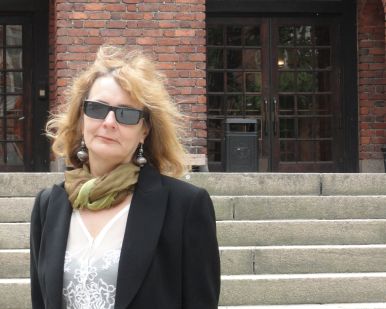A professor from the Faculty of Environmental Design is helping urban planners in post-socialist Latvia cope with an overwhelming problem: transforming 53 million post-war apartments into vibrant neighbourhoods for more than 170 million people.
Sasha Tsenkova, planning professor in the Faculty of Environmental Design (EVDS), who specializes in housing policy and urban resilience, was invited by the chief architect of Riga, Latvia, to speak at the International Reinhold Schmaeling Conference for policy makers, planners, architects and academics.
As a former advisor to the central government of Latvia on housing reforms, Tsenkova’s critical analysis of the city and region has been widely publicized, and she has directed several regional projects funded by the Canadian International Development Agency.
“It is a privilege to be invited back to Riga, one of the most beautiful capitals in Europe with 800 years of history” says Tsenkova. “While lecturing at several universities in Latvia, I also had the opportunity to join the Canadian Ambassador to the Baltic States and meet with other academics, city planners and business leaders in the region.”
Tsenkova’s keynote lecture, ‘Improving Riga’s neighbourhoods: strategic priorities, investment and resilience,’ suggests the country has lost a decade in its urban development due to the lack of coherent housing policy.
A haphazard approach to housing in Latvia
In Latvia housing reforms have proceeded with a ‘trial and error’ approach, promoting neoliberal policies, deregulating housing finance, and experimenting with fiscal programs to encourage homeownership. Despite this the housing market demonstrates signs of failure.
Exploring the challenges and opportunities defining Riga’s housing market, Tsenkova’s presentation made a compelling case for improved policy measures sighting examples from neighbourhood enhancement programs in Vienna, Amsterdam and Stockholm where strategic investment in diverse, socially cohesive and participatory projects has made a difference.
“Cities in the Baltic States have a legacy of compact mixed-use development, and high quality public spaces well connected with public transit, but need to create a resilient housing system that can contribute to economic growth and prosperity,” Tsenkova says.
Story by Jessica Wallace


